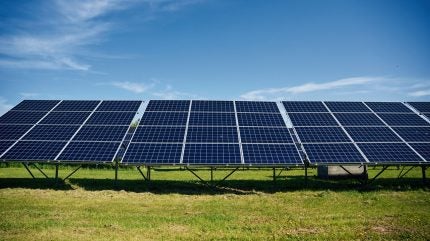
The UK government has approved the Tillbridge Solar Farm project near Gainsborough in Lincolnshire, marking it as a ‘Nationally Significant Infrastructure Project’.
The 700MW solar project will span across approximately 3,000 acres.

Discover B2B Marketing That Performs
Combine business intelligence and editorial excellence to reach engaged professionals across 36 leading media platforms.
The project is expected to support 1,250 jobs and power 300,000 British homes.
The approval of Tillbridge Solar Farm is part of the government’s broader initiative, having sanctioned 17 key clean energy projects since July 2024. These projects will together be able to power over 7.5 million homes.
The government’s strategy focuses on maximising the installation of solar panels on rooftops.
By doing so, families could potentially save approximately £500 ($667.5) annually on their energy bills.

US Tariffs are shifting - will you react or anticipate?
Don’t let policy changes catch you off guard. Stay proactive with real-time data and expert analysis.
By GlobalDataUK Minister for Energy Michael Shanks said: “Families across Lincolnshire and the rest of the country have seen their energy bills go through the roof as a result of our exposure to volatile gas prices.
“Solar is one of the cheapest and quickest power sources we can build, it is crucial in our mission to make Britain a clean energy superpower – giving us energy security, good jobs and growth across the country.”
The government is considering implementing mandatory community benefits for areas hosting ground-mounted solar installations.
This initiative would ensure that families living near solar farms receive direct advantages through funding.
These funds could be allocated to local priorities such as new educational programmes, football pitches, or improved transportation links.
The government asserts that decreasing the reliance on gas-fired power plants to merely 5% of the UK’s electricity requirements by the decade’s end could lead to lower energy bills, reported the Guardian.





